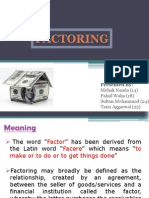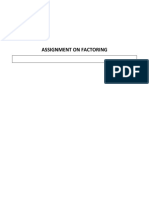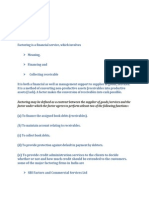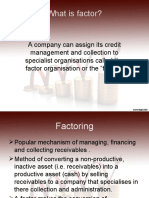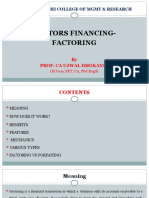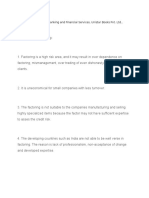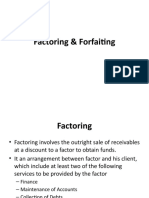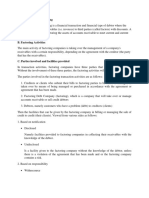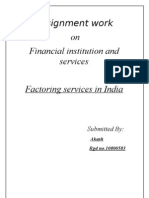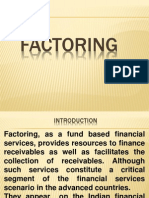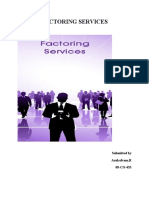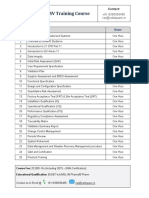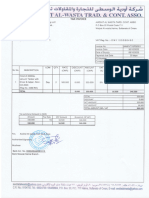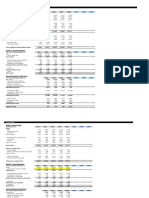0% found this document useful (0 votes)
120 views18 pagesReceivables Management: Factoring
Factoring is a financial arrangement where a business sells its accounts receivables (invoices) to a third party (called a factor) in exchange for immediate cash. The factor then takes on the responsibility of collecting payment from the customers and charges interest for its services. There are different types of factoring arrangements depending on factors like whether the customer is notified, the level of risk assumed by the factor, and whether it occurs domestically or internationally. Factoring provides benefits to both businesses seeking working capital and their customers through more flexible payment terms and lower costs.
Uploaded by
sonarevankarCopyright
© Attribution Non-Commercial (BY-NC)
We take content rights seriously. If you suspect this is your content, claim it here.
Available Formats
Download as PPT, PDF, TXT or read online on Scribd
0% found this document useful (0 votes)
120 views18 pagesReceivables Management: Factoring
Factoring is a financial arrangement where a business sells its accounts receivables (invoices) to a third party (called a factor) in exchange for immediate cash. The factor then takes on the responsibility of collecting payment from the customers and charges interest for its services. There are different types of factoring arrangements depending on factors like whether the customer is notified, the level of risk assumed by the factor, and whether it occurs domestically or internationally. Factoring provides benefits to both businesses seeking working capital and their customers through more flexible payment terms and lower costs.
Uploaded by
sonarevankarCopyright
© Attribution Non-Commercial (BY-NC)
We take content rights seriously. If you suspect this is your content, claim it here.
Available Formats
Download as PPT, PDF, TXT or read online on Scribd
/ 18



